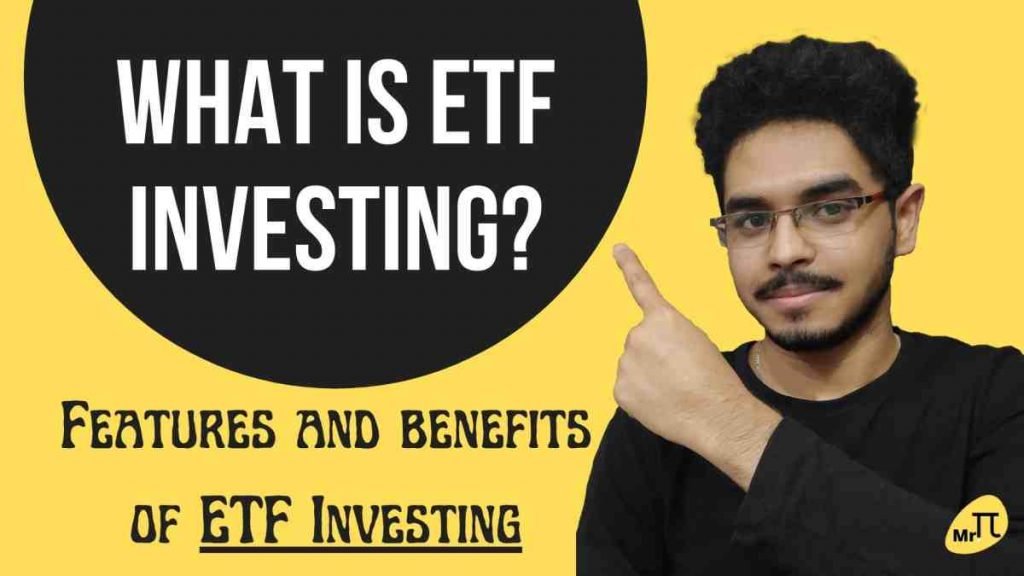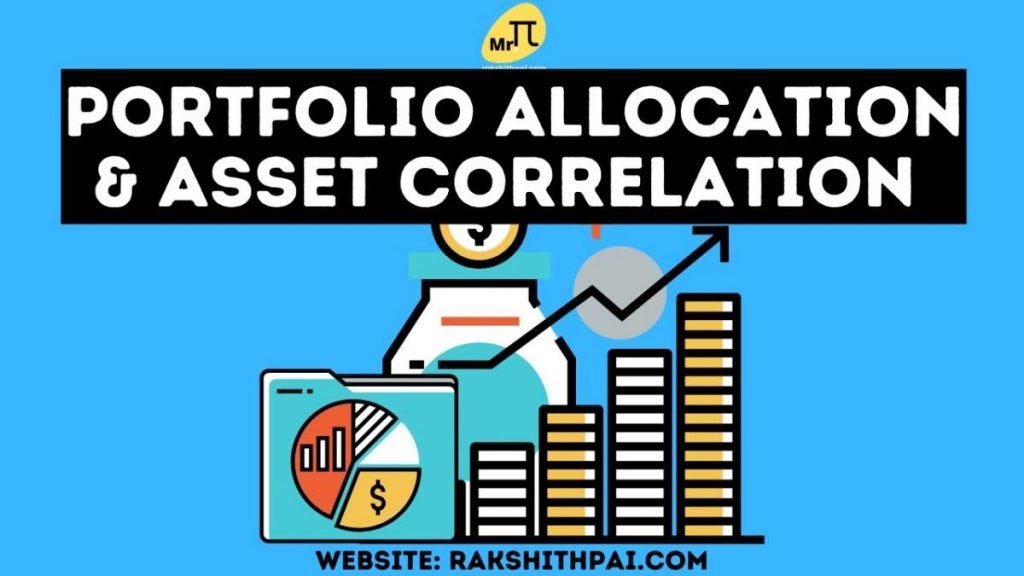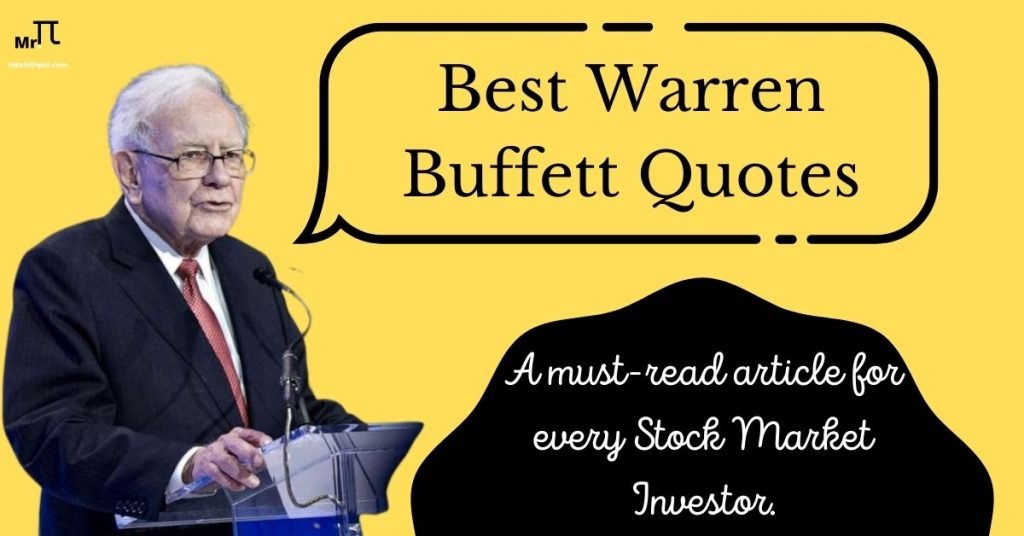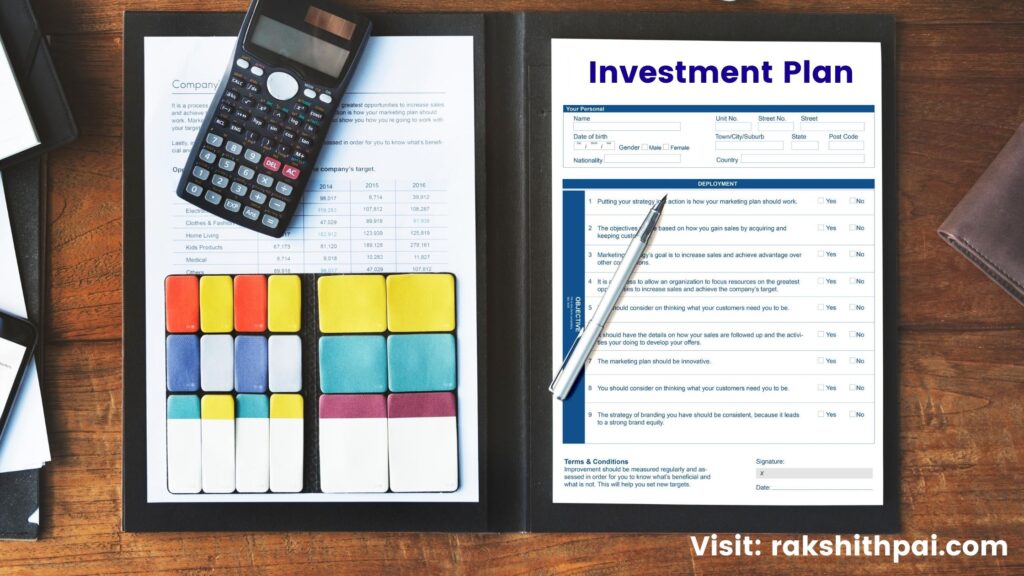Table of Contents
Introduction:
What ETF is Investing. Its benefits, and features. And, finally, some important aspects of ETF investing will be discussed.
ETFs are a collection of or a basket of Equities/bonds. Exchange-traded funds (ETFs) have acquired broader recognition as financial instruments due to their distinct advantages over mutual funds. These tools are advantageous for investors who struggle to grasp the art of assessing and selecting equities for their portfolios.
Just like a Fruit basket. And, a Vegetable basket. Stock ETF in simpler terms means a Stock basket.
Here, you find different companies of the same nature or same sector put in one basket and sold to you as ETF.
Features and Benefits of ETF Investing:
Diversify your Portfolio
ETF is an amazing tool to diversify your portfolio. With one single ETF, you can subscribe to a dozen of different stocks. This way, you’ll attempt to construct the portfolio as a professional fund manager.
High Flexibility
ETFs are freely traded in the open market just like any other equity shares of a company. ETF’s per-share price varies throughout the trading sessions and is relatively inexpensive and can be easily bought and sold.
Low cost
Compared to Mutual funds and index funds, ETF investing is a relatively low-cost investment with similar features. So, it’s a great substitute for those seeking low-cost investments.
Because an ETF is listed on an Exchange, costs of distribution are much lower and the reach is wider. These savings in cost are passed on to the investors in the form of lower costs. Further, the structure helps reduce the collection, disbursement, and other processing charges.
No extra transaction cost
You can buy and sell ETF just like any other equity shares of a company. This is because the fund does not incur extra transaction cost for buying/selling the index shares due to frequent subscriptions and redemptions.
Long-term assets
ETFs are also the best investment tool for long-term investing. It gives exposure to various equity platforms and if held tight, with Low expenses ratio and high return. A wonderful combination, it can give pretty good returns to investors
Major Advantage of ETF Investing:
The major advantage of ETF investing is that we can buy an entire sector. Suppose you are not well versed with any sector, for me it’s Pharmaceutical. I can read the financials, but I find it difficult to understand the economies behind the Pharma sector.
So, if I want to buy a Pharmaceutical company. I buy Pharma ETF. this way with very little work, I get to have India’s top Pharm companies in my portfolio.

Types of ETF:
Equity ETF
ETFs that track a major company or sector is called stock (equity) ETFs. A stock ETF might, for example, track automotive or international stocks. The goal is to provide diverse exposure to a particular industry, one that comprises both high-performing companies and newcomers with growth potential. Stock ETFs are cheaper than stock mutual funds and don’t require you to own actual stocks.
Bonds ETF
Bond ETFs are used to offer investors a steady stream of income. The distribution of their earnings is determined by the performance of the underlying bonds. Government bonds, corporate bonds, and state and local bonds, often known as municipal bonds, are examples. Bond ETFs, unlike their underlying assets, do not have a set maturity date. They usually trade at a discount or premium to the actual bond price.
Sectoral ETF
ETFs that focus on a single industry or sector is known as “industry or sector ETFs.” Companies operating in the energy industry, for example, will be included in an energy sector ETF. Industry ETFs are designed to provide exposure to an industry’s upside potential by following the performance of the company in that sector. One example is the IT sector, which has seen a recent flood of capital.
On the other hand, because ETFs do not entail direct ownership of shares, the downside of volatile market performance is also limited. During economic cycles, sector ETFs are also used to move in and out of sectors.
Commodity ETF
Commodity ETFs, as their name suggests, invest in commodities such as crude oil or gold. Commodity ETFs have a number of advantages. They first diversify a portfolio, making it much easier to hedge against market downturns.
Commodity ETFs, for example, can act as a safety net in the event of a stock market downturn. Second, owning shares in a commodities ETF is less expensive than owning the commodity itself. This is due to the fact that the former doesn’t really require insurance or storage.
Currency ETF
Currency exchange-traded funds (ETFs) are pooled investment vehicles that monitor the performance of exchange rates that include both domestic and international currencies. Currency exchange-traded funds (ETFs) have a variety of uses. They can be used to speculate on currency prices based on a country’s political and economic trends.
Importers and exporters use them to diversify their portfolios or as a hedge against volatility in the FX markets. Some of them are also employed as a form of inflation protection. Bitcoin even has its own exchange-traded fund (ETF).
Crypto ETF
An ETF that invests in cryptocurrencies is known as a cryptocurrency exchange-traded fund (ETF). A cryptocurrency ETF measures the price of one or more digital tokens, whereas other ETFs track an index or a basket of assets. The share price of bitcoin ETFs swings on a daily basis based on investment sales and purchases. They are traded on a daily basis just like conventional stocks.
What is Cryptocurrency? Its Types, Features, Benefits & Drawbacks Explained
Active ETF v/s Passive ETF Investing:
Traditional exchange-traded funds (ETFs) come in a wide range of options, mirroring almost any index you can think of. All of the advantages of index mutual funds, such as low turnover, low costs, and broad diversification, are provided by ETFs, but with substantially lower expense ratios.
While passive investing is popular among ETF investors, it is not the only option. We look at and evaluate different ways to invest in ETFs to learn more about how investors are using these innovative vehicles.
ETF Active Investing
Despite the track record of indexing, many investors aren’t satisfied with so-called average returns. Despite the fact that just a small percentage of actively managed funds outperform the market, they are prepared to give it a shot. ETFs are the ideal tool for this.
ETFs allow these traders to follow the market’s trend and trade accordingly by permitting intraday trading. These active traders can profit from short-term swings while still trading an index like a passive investor. Active traders can lock in profits instantly if the S & P 500 rises sharply when the markets open.
As a result, all active trading tactics that can be used with traditional stocks, such as market timing, sector rotation, short selling, and buying on leverage, may also be used with ETFs.
ETF Passive Investing
ETFs were created to offer investors a single instrument that tracked an index and could be traded intraday. Intraday trading allows investors to purchase and sell all of the securities that make up a market (such as the S & P 500 or the Nasdaq) in one transaction. Unlike mutual funds, which only trade once a day, ETFs give you the freedom to enter or exit a position at any time during the day.
While intraday trading is a boon to professional traders, it is purely and simply comfort for investors who prefer to buy and hold, which is still a viable and popular strategy-especially when we consider that most actively managed funds, according to Morningstar, fail to outperform their benchmarks or passive counterparts, particularly over longer time horizons. ETFs are a simple and inexpensive way to implement indexing or passive management.
Can I lose all my money in ETF Investing?
Well, the answer is both yes and no.
See, in ETF, you are not investing in any single company. It’s a bunch of companies. If all or the majority of the company in that ETF goes bankrupt, then your ETF value will substantially reduce in value and even go bad.
But, the happening of this is very minimum if you stick with well-established and known ETFs such as Index ETFs.
Difference between Index Funds and ETFs?
ETFs are, as their name indicates, mutual funds that trade on exchanges. These funds buy a group of securities that make up an index, or, in the case of a gold ETF, they buy mostly gold and follow the price of gold.
These indexes might be market-wide, such as the Nifty 50 or Sensex 30, or sector-specific, such as those used in the banking or technology industries. Some ETFs, like the Nifty 50-Value 20, are also based on strategic or thematic indexes.
ETFs are actively traded on the stock exchange. They are listed and tradable like any other stock. Wherein, an index fund isn’t listed. ETFs provide other advantages as well. ETFs, which are passively managed funds, incur fewer expenses when compared to a Mutual Fund.
The expense ratio is essentially the costs that a fund management company charges for managing your money. The cost ratio of Kotak Nifty ETF, for example, is 0.12 percent. Another important feature of ETF Investing is Diversification.
Diversification is regarded as one of the most important concepts in asset allocation since it reduces the risk associated with investing in a single item. ETF investments provide this diversity at a comparatively cheap cost.
In conclusion, exchange-traded funds (ETFs) might be regarded as an investment alternative, particularly for novice investors who are unclear about which instruments to select.
How to Invest in Index Funds? Top Index Funds, Benefits and risk-return explained:
Difference between Mutual Funds and ETFs?
There are many differences, but, for easy understanding. Just know this. Mutual Funds are actively managed and Most ETFs are passively or semi-passively managed. There’s not much hassle in ETF Investing.
Everything you need to know about Mutual Fund Investing:
Are ETF Investing safe against a Market crash or is it suited for retirement savings?
Index ETFs are a good option in such cases. The fees are low, they replicate the broad market like the Nifty 50 Index, Sensex-based ETF, etc. So, even with a bigger crash, it’ll recover and recoup back to its usual position.
Finally, I’ll conclude this video by saying that ETF should form part of your portfolio. I have 6 ETFs in my portfolio and they have been put together and given me a very good return. They tend to balance your portfolio well. These are the ETFs I have invested in.
Conclusion:
An ETF (exchange-traded fund) is a pooled investment vehicle that works similarly to a mutual fund. ETFs often track a certain index, sector, commodity, or other assets, but unlike mutual funds, they can be bought and sold on a stock exchange just like regular stocks. An ETF can be set up to track anything from a single commodity’s price to a huge and diverse group of securities. ETFs can even be built to follow certain investment strategies.
An ETF is a form of investment that, unlike a stock, holds numerous underlying assets rather than just one. ETFs are a popular alternative for diversification because they contain a variety of assets. ETFs can thus hold a variety of investments, such as stocks, commodities, bonds, or a combination of them.
An ETF can hold hundreds or even thousands of equities from a variety of industries, or it can be focused on a single area or industry. Some funds are only focused on the Indian market, while others have a broader perspective. Banking-focused ETFs, for example, would own stocks from a variety of banks across the industry.
An ETF is marketable security, which means it has a share price that permits it to be purchased and sold on exchanges at any time throughout the day, and it can also be sold short.
FAQs:
Watch YouTube video for more information:
Disclaimer: All the information on this website is published in good faith and for general information purposes only.









